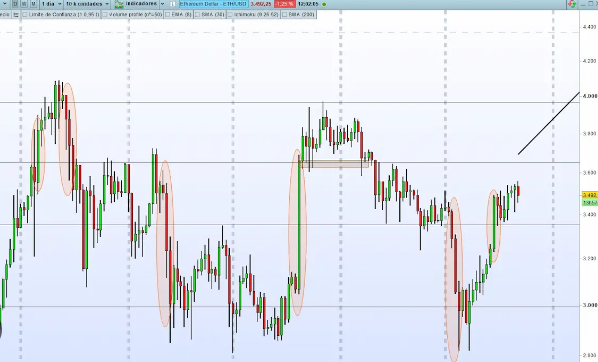The Impact of Inflation on Forex Markets
Inflation can have a significant impact on forex (foreign exchange) markets, influencing currency values and exchange rates. Here’s a closer look at how inflation affects forex markets:
- Currency Depreciation: When a country experiences higher inflation than its trading partners, its currency may depreciate in value. This depreciation occurs because higher inflation erodes the purchasing power of the currency, making it less attractive to foreign investors. As a result, the exchange rate of the currency can weaken relative to other currencies.
- Central Bank Policies: Central banks play a crucial role in managing inflation. To control inflation, a central bank may raise interest rates, reducing the money supply and curbing spending. Higher interest rates can make the currency more attractive to investors, leading to an appreciation of the currency. Conversely, if a central bank pursues expansionary monetary policies to combat deflation or stimulate the economy, it can lead to a depreciation of the currency.
- Inflation Differentials: Inflation differentials between countries can influence exchange rates. If a country experiences higher inflation than its trading partners, it may lead to a depreciation of its currency. On the other hand, if a country has lower inflation rates, its currency might appreciate.
- Investor Sentiment: Inflation influences investor sentiment and market expectations. High inflation rates erode purchasing power and decrease the attractiveness of holding a currency. Investors may seek out currencies with lower inflation rates or invest in assets that are expected to provide a hedge against inflation, such as commodities or inflation-protected securities. Changes in investor sentiment can affect exchange rates and forex markets.
- Import and Export Dynamics: Inflation can affect a country’s trade balance, which can, in turn, impact its currency value. High inflation can increase the cost of production and exports, making a country’s goods less competitive in the global market. Conversely, if a country has lower inflation relative to its trading partners, its exports may become more competitive, leading to an appreciation of its currency.
- Inflation Expectations: Forex markets are forward-looking and incorporate expectations of future inflation. If market participants anticipate higher inflation, it can influence exchange rates even before the actual inflation data is released. Changes in inflation expectations can lead to speculative currency trading and impact exchange rates.
It’s important to note that the relationship between inflation and forex markets is complex. Various factors, including economic fundamentals, market sentiment, and political events, can also influence currency values. Traders and investors closely monitor inflation indicators and central bank announcements to make informed decisions in forex trading.













Post Comment